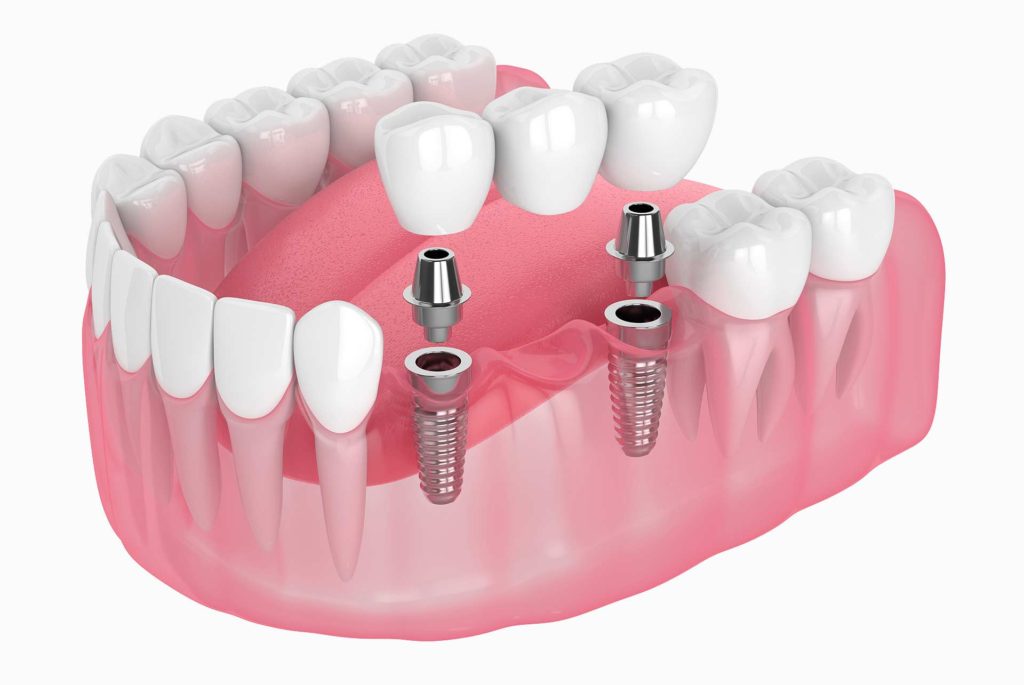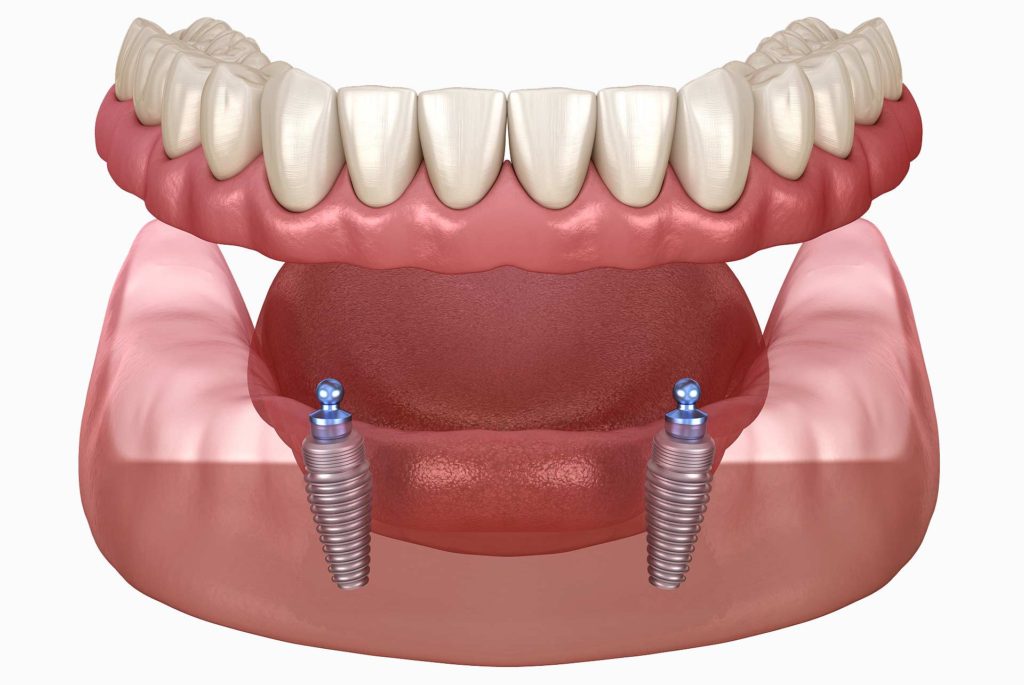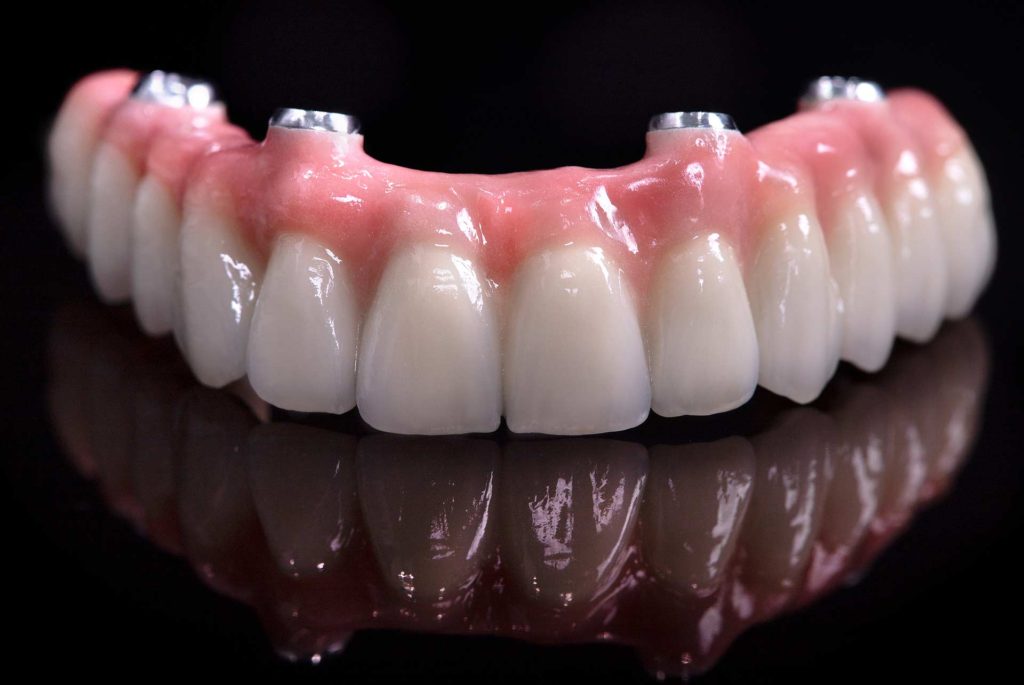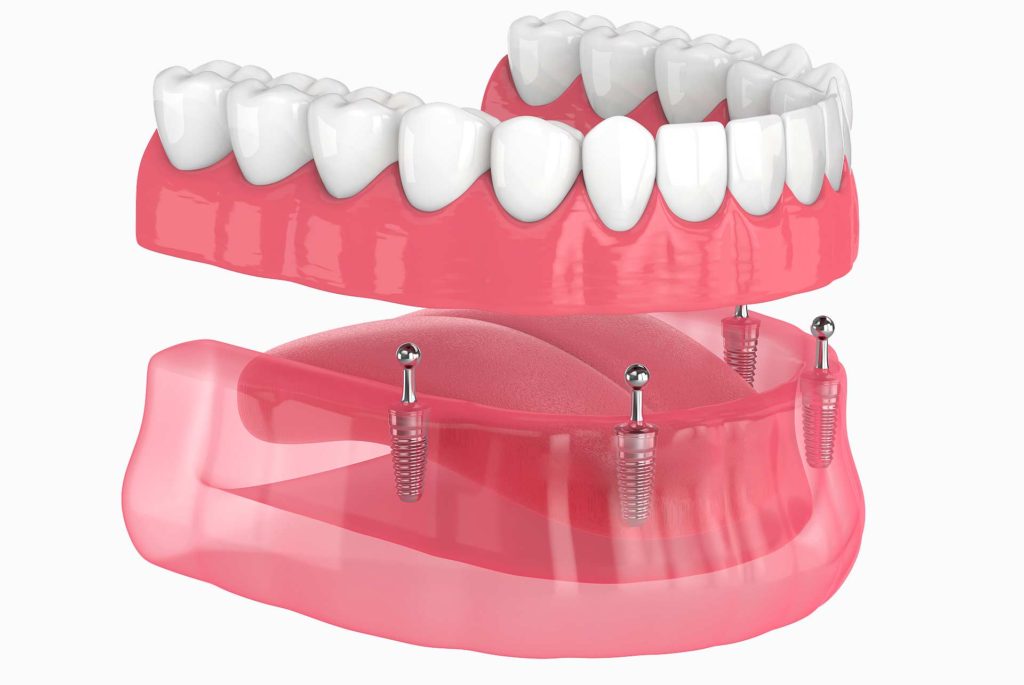What is a Dental Implant?
Dental implants are small anchors made of a biocompatible material called titanium that are placed in bone. Dental implants replace the tooth root that is no longer present. Once placed, the anchor begins to fuse with the bone over a course of several months. After the fusing process, known as osseointegration, abutment posts are inserted into the implant to allow for permanent attachment of replacement teeth.
Why Should I Consider Dental Implants?
Implants are a healthy, safe, permanent and even conservative way to replace one or several teeth, maintain oral health, and preserve bone that is lost when a tooth comes out.
Implant-Supported Bridges
An implant supported bridge is a restorative solution for spaces where three or more adjacent teeth are missing. The restoration typically requires two implants to support the porcelain bridge. The bridge provides a functional and aesthetic replacement for a patient’s natural teeth and does not stress or compromise a person’s remaining teeth.

Implant Supported Dentures
For patients who are candidates for removable dentures, implants can be used to support these restorations. Typically, two or more implants are placed to support a full denture. Utilizing implants is a solution for the denture shifting or “slipping” during use. Typically, the denture will “snap” on to the implant thus preventing the use of adhesives or paste to hold them in place. Removable dentures can be taken out for cleaning at night.

Full Arch with Only Four Implants
This procedure is a unique solution that allows patients who are missing an entire arch of teeth to replace all the teeth using four implants as anchors for an implant-supported porcelain bridge.

Mini Dental Implants (MDIs)
There are times when a full-size implant is not a viable option, and in many cases a mini dental implant may be a great solution. Small spaces or inadequate bone may prevent the use of a traditional implant. MDIs are similar to regular implants, but are smaller in diameter. The placement of MDIs is minimally invasive, and can often be placed with the final tooth replacement in one day.

